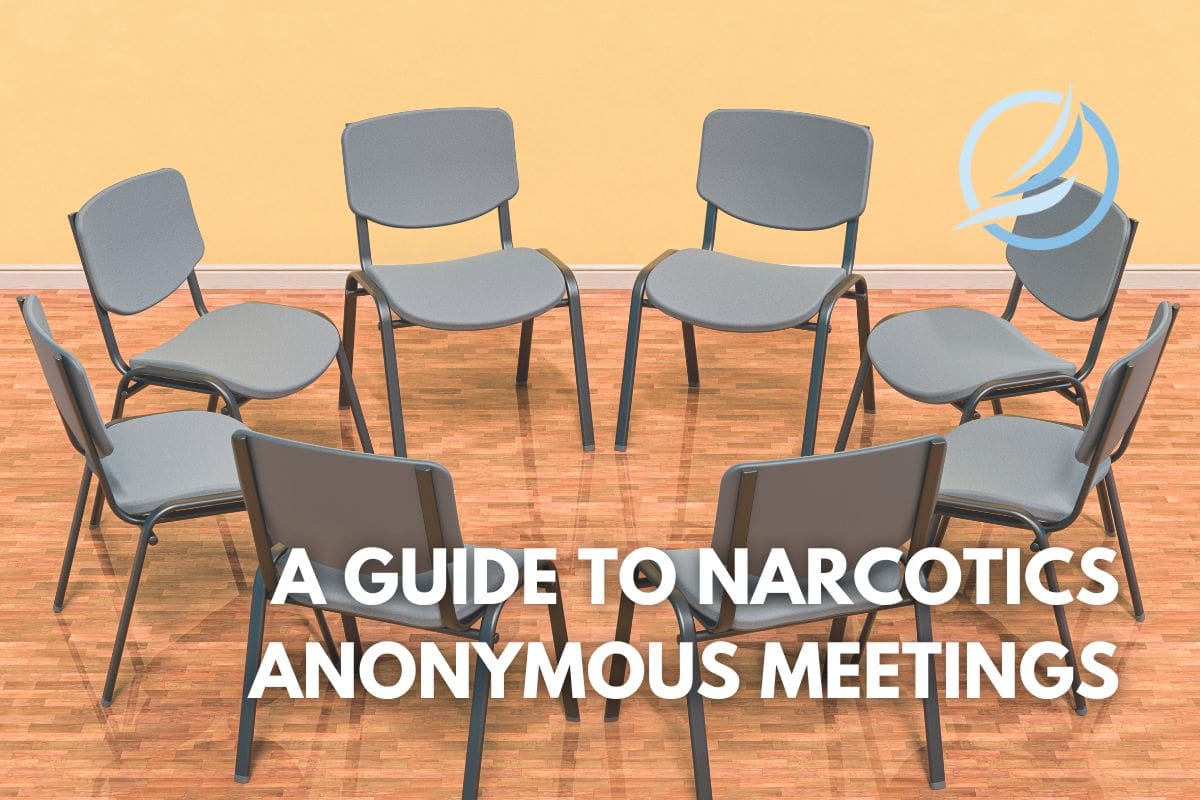Narcotics Anonymous (NA) is a global, community-based organization dedicated to helping individuals overcome addiction and maintain long-term sobriety. Taking the first step towards recovery—attending your first NA meeting—can be overwhelming, especially when you’re unsure about what will happen. This guide aims to provide you with tips and insights to help you feel more prepared and supported.
What is Narcotics Anonymous?
Narcotics Anonymous (NA) was founded in 1953 as a community-based organization to support individuals struggling with addiction. Originating in Los Angeles, California, NA grew out of the principles of Alcoholics Anonymous, adapting its 12-step program to address the unique challenges of drug addiction. Today, NA operates in over 130 countries, providing a lifeline to those seeking recovery.
At its core, NA is built on honesty, open-mindedness, and willingness. The organization encourages members to share their experiences, strengths and hopes with one another to support their collective recovery journey. NA’s guiding philosophy emphasizes that addiction is a disease that can be managed through mutual support and personal growth.
The 12 Steps of Narcotics Anonymous
The 12 Steps of Narcotics Anonymous are the cornerstone of the NA program. They guide individuals through recovery with a structured personal growth and sobriety approach.
Each step builds on the previous one, creating a comprehensive framework for recovery. The steps encourage honesty, self-reflection, and a willingness to change, crucial elements in overcoming addiction.
- Admitting Powerlessness: Recognizing that addiction has taken control and acknowledging the need for help.
- Believing in a Higher Power: Accepting that a greater force, however one chooses to define it, can provide the strength needed for recovery.
- Turning Over Control: Deciding to turn one’s will and life over to this higher power.
- Self-Inventory: Conducting a thorough and honest self-assessment to identify harmful behaviors and patterns.
- Admitting Wrongs: Admitting the exact nature of one’s wrongs to oneself, a higher power, and another person.
- Preparing for Change: Being ready to let go of defects of character.
- Asking for Help: Humbly asking the higher power to remove these shortcomings.
- Making a List of Amends: Listing those who have been harmed and being willing to make amends.
- Making Amends: Directly making amends to those affected, unless doing so would cause further harm.
- Continued Personal Inventory: Regularly self-evaluating and promptly admitting when wrong.
- Seeking Connection: Seeking to improve conscious contact with the higher power through prayer and meditation.
- Helping Others: Carrying the message of recovery to others and practicing these principles in daily life.
Types of Meetings
Each type of meeting may have its unique flavor, but its different elements create a consistent and supportive framework for members to connect and grow in their recovery.
- Open Meetings: These are open to anyone interested in learning about NA, including non-addicts. They provide an excellent introduction for newcomers and their loved ones.
- Closed Meetings: These are only for individuals who identify as people with an addiction. They offer a more intimate setting for sharing personal experiences.
- Speaker Meetings: In these meetings, members share their personal stories of addiction and recovery, inspiring and guiding others.
- Discussion Meetings: These involve group discussions on specific topics related to recovery, allowing members to share their thoughts and experiences.
Common Practices and Rituals
Meetings usually begin with a reading from NA literature, such as the NA Basic Text or “Just for Today” meditation. This sets the tone and provides a focus for the meeting. After the readings, there may be a moment of silence followed by the Serenity Prayer.
Common practices and rituals are an integral part of NA meetings. They help create a sense of community and continuity, reminding members they are part of a larger support network.
Here are some key practices:
- Reading from NA Literature: This helps ground the meeting in the principles of NA.
- Sharing Stories: Members take turns sharing their personal experiences with addiction and recovery. This cornerstone of NA meetings fosters a sense of community and mutual support.
- Keytags and Chips: These are often given out to recognize milestones in recovery, such as 30 days, 60 days, or one year of sobriety.
What to Expect at Your First NA Meeting
Attending your first NA meeting can feel daunting, but knowing what to expect can help ease some of the anxiety. Here’s a guide to help you through the process:
1. Finding a Local NA Meeting
Finding a local NA meeting is easy. You can visit the official Narcotics Anonymous website or use mobile apps that list meeting locations and times. Many community centers, churches, and treatment facilities also host NA meetings.
2. Arriving at an NA Meeting
When you arrive, you’ll be greeted by fellow members. Meetings typically start on time, so aim to arrive a few minutes early to find a seat and get settled. If it’s an open meeting, you might see a mix of newcomers, long-term members, and possibly some non-addicts who are there to support loved ones.
3. The Role of Sponsors and How to Find One
Sponsors play a crucial role in the NA recovery process. A sponsor is an experienced member who can provide guidance, support, and accountability as you navigate your recovery journey.
Finding a sponsor usually happens organically. You might hear someone share their story and feel a connection, or another member might suggest someone to you.
Tips for Newcomers on What to Expect and How to Participate
For those new to NA meetings, the experience can be overwhelming. However, understanding how to engage can make the process smoother and more beneficial. Here are some tips to help you navigate your first meetings:
- Listen and Observe: In your first few meetings, it’s perfectly okay to listen and absorb the experiences and advice of others simply. This will help you get a sense of the meeting structure and the types of topics discussed.
- Introduce Yourself: When you’re ready, introduce yourself. This can be as simple as saying, “Hi, I’m [Your Name], and I’m an addict.” This small step helps build connections with other members.
- Share When You Feel Comfortable: Sharing your story is a powerful part of the NA process, but waiting until you feel comfortable is okay. No one will pressure you to speak before you’re ready.
- Stay Open-Minded: Everyone’s journey to recovery is different. What works for one person might not work for another. Keeping an open mind will help you find the tools and strategies that best support your recovery.
Benefits of Attending NA Meetings
Attending NA meetings offers numerous benefits that can significantly aid recovery. Here are some of the key advantages:
- Emotional and Psychological Benefits. Sharing stories and hearing others’ experiences can lead to emotional healing and reduce feelings of isolation. The support and understanding from fellow members can help alleviate anxiety, depression, and other emotional burdens associated with addiction.
- Building a Support Network and Sense of Community. Members develop strong bonds and friendships with others who understand their struggles. Knowing that you are not alone in your journey can be incredibly empowering.
- Learning Coping Strategies and Gaining Insights from Others’ Experiences. By listening to how others have navigated their recovery, members can gain valuable insights and learn new ways to handle cravings, triggers, and stress.
How to Support a Loved One in NA
Supporting a loved one by attending NA meetings can significantly impact their recovery journey. Here are some ways you can be a supportive ally:
- Encourage Attendance: Consistently encourage your loved one to attend NA meetings, reminding them of the benefits and support these meetings provide. Offer to help with transportation or childcare to make it easier for them to attend.
- Be Patient and Understanding: Recovery is a long and often challenging process. Be patient with your loved one as they navigate their journey, and offer understanding and empathy, even during difficult times.
- Celebrate Milestones: Acknowledge and celebrate your loved one’s milestones in recovery, whether it’s 30 days of sobriety or completing a step in the program. These celebrations can boost their morale and reinforce their commitment to sobriety.
- Educate Yourself. Attend open NA meetings or family support groups to gain insights into the challenges of addiction and recovery. Show your loved one you are there for them, offering unconditional support and encouragement.
Get Help
Are you or someone you care about struggling with drug addiction? Remember, you are not alone on this journey. The Freedom Center provides a supportive environment for group sessions and individualized care to help you through this challenging time.
If you’re ready to take the first step towards recovery or looking for guidance and support, please don’t hesitate to reach out to us. Our team of compassionate professionals is here to help you start your path to sobriety. Contact us today for a confidential consultation.


































